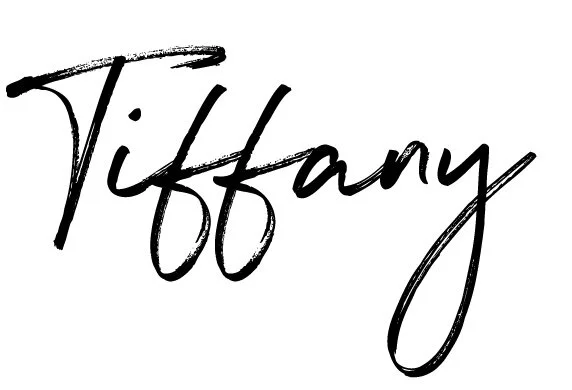How Much Does Editing a Book Cost in 2025? (+ How to Get the Best Value)
You’ve finished a book! It’s one of the best feelings in the world, so before you do anything else, enjoy that! Only three percent of people who set out to write a book actually finish. You’re a rockstar.
Buuuuuuut…no matter how good your draft is, it needs editing. I don’t say that as an editor. I say that as a writer who would be nowhere without having had a number of great editors.
You’ve been working on this book for a long time, and I guarantee you’re too close to it to see everything that needs to happen to make it the best it can be.
Right now your manuscript is almost certainly suffering from:
Small problems: You have grammatical errors and typos, missing words and confusing verbiage. I know because we all do at this point!
Big problems: You have plot holes and dropped threads, underdeveloped characters and underdeveloped arguments or themes. Your pacing is rushed in some places, and it drags in others. Your point of view and your dialogue could stand some tightening. How do I know? I’ve read a lot of unpublished manuscripts, including my own.
It’s not you. It’s just how writing works. We’re too close to our own words to see them clearly. We read right over grammatical mistakes, and we can’t see that unclear setting or action or argument because we know what we meant, even if it’s not currently on the page.
So how much will editing cost?
Making your manuscript good enough to start selling directly to readers or to sign with a literary agent and land a book deal, will take work. And most likely money.
There are many types of editors at many different price points. For more information on what each type of editor does — from developmental editors to copyeditors — check out my post The Complete Guide to Editing Your Book. In it, I walk you through what type of editing you might need and when. Then I offer tips on saving money and making the most out of the experience.
Today, I’m going to focus on what editors charge.
Some editors charge by the hour, some by the word, and some by the page. For our purposes, I’m going to include both per-word rates and the sum that would add up to for an average-length book of 80,000 words. If someone you’re interested in working with charges a different way, you can still compare the total estimate to what’s below.
These editing costs are based on the editorial rates chart at the Editorial Freelancer’s Association, an organization for freelance editors, writers, proofreaders, and other professionals. Their chart of editing rates is updated each year and represents a range of median rates for various editors. That means these price ranges are right in the middle of the road.
The EFA uses per-word rates, and I also apply that to a typical word count of 80,000 so you can compare to editors who quote you by the project, the hour, or by some other formula.
Developmental editing
Deep editing that covers large-scale issues like plot, structure, character development, pacing, voice, setting etc. Or for non-fiction, things like argument, structure, pacing, and audience.
.04-.07 per word, or for an average 80,000 words $3,200-$5,600
Line editing
Sentence-level editing that helps strengthen and polish your book on a more micro level, ensuring your words are concise, clear, and conveying maximum impact.
.04-.06 per word or $3,200-$4,800
Full edit, or developmental Edit + line notes
All of the overall feedback of a developmental edit, plus a line edit. The EFA did not survey for this service, but it is labor intensive (and extremely valuable), so expect a higher rate than any of the above. Think $3,500-$7,000.
Copyediting
Extremely detailed fine-tuning that corrects all grammar, syntax, inconsistencies, and sometimes incorrect facts.
.03 cents per word to .06 or $2,400-$4,800
Proofreading
After the book is formatted and almost ready for publishing, proofing corrects typos, formatting and pagination errors. (Note that you only need to pay for this if you’re self publishing. If you have a traditional publisher, they will pay for proofing.)
02-.039 $1,600 - $2,120
Editorial Assessment
This can be an affordable alternative to a developmental edit if you can’t invest in the full thing. You’ll get overall feedback on a manuscript’s merits but without any line notes and with far less detail than a developmental edit. Expect 1-2 page of overall feedback. The Editorial Freelancer’s Association does not survey for this service but good editors I know tend to charge between $1,500-$2,000.
Why your edit might cost more or less.
Costs can vary based on:
How much work your book needs. Sometimes an editor may want to see a sample of your work before giving you a quote. Likewise, if they charge by the hour and your book needs heavier editing, expect to pay more. (To get the most bang for your buck, I suggest self-editing until your book is in the best shape you can get it before hiring an editor. More on that below.)
The editor’s level of experience and how much demand there is for their services.
Your genre. For example business and STEM is on the highest end, but anything that requires fact-checking like historical fiction or fact-heavy non-fiction, will also cost more
The length of your book. Whether by hour, word, or page, you’ll usually pay more for a longer book. Naturally.
How to save time, money, and stress.
Set your book aside for a few weeks so you can read it again with fresh eyes, and then do a detailed self edit. You’ll be amazed by what you see when you’ve had some time away. You’ll probably feel the places where the pacing lags or rushes, and you’ll notice some of your inconsistencies, and find weaknesses in things like character development and structure. You’ll probably still read right over a lot of your typos and certainly the grammar errors you don’t know you’re making, but you can get your book in better shape and start the editing process from a self-edit.
Why pay an editor to spend time fixing things you already knew were wrong? Let them focus on taking the book to an even higher level. You can read more about how to conduct a successful self edit in my post How to Edit Your Book Step by Step: Save Yourself Time, Money, and Stress.
It can sometimes be beneficial to incorporate feedback from beta readers before you hire an editor. Just make sure you find the right people and give them good guidelines. Otherwise you can get bad advice that wastes your time and theirs. Read more on how to make the most of a beta read in my post Beta Readers: The Good, the Bad, and Where to Find Them.
Is editing worth it?
I’m an editor, so of course I’d say yes, right? More importantly, I’m a writer, and no matter how much experience I have editing, I always hire a trusted editor for my own work. No amount of experience guarantees you’ll see your own errors, big and small.
More questions? Let me know what else you want to know about editing in the comments below. 👇












